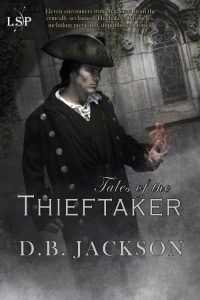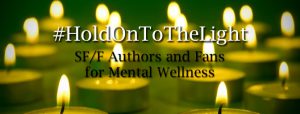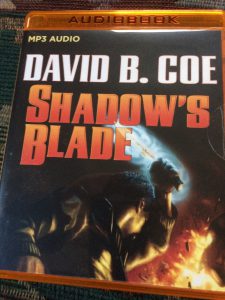I’ve published nineteen novels, written lots of short stories, and (for those who like their cautionary tales with a dollop of irony) even co-authored a book on writing. And here I was, totally enamored of a manuscript that had deep structural issues. I should have known better.
Writers tend to want to share on social media when things are going well. We love to trumpet our happy news, and I’m certainly no different.
There are sound reasons for this. One is purely professional: It helps our careers to focus on the good stuff, to show the world new cover art, or to announce an upcoming release, the sale of a book to a publisher, an award nomination or great review from a major journal. Publicizing these things contributes to what the industry refers to as “buzz.” We want people to talk about us, and about our work, for the right reasons.
There is also a purely human reason: As I have said many, many times, writing is a difficult way to make a living. It can be frustrating, even demoralizing. We do much of our work in isolation, struggling with story lines and character arcs, and it can seem, at times, as though those tidbits of good news come all too infrequently. So, when things do go well, we want to shout it from the rooftops. And when those disappointments come, we tend to keep them to ourselves.
Which is why this is such an unusual post for me.
I’m dealing with a professional setback, and I believe it’s worth discussing publicly, because it represents, in many respects the very essence of what a writing career is like. Now let me be clear: In the larger scheme of things, this is a minor reversal, a tiny blip in the course of my career and something I will address and overcome quickly. But it certainly knocked me on my butt for a few days.
In December, I turned in a manuscript to my agent. This is a new project, the first volume in what I expect will be a time travel/epic fantasy trilogy (or more). In my excitement, I announced on Facebook and elsewhere that I had completed the book. I’m pretty sure I said at the time that it was the best work I had done to date. I’ve since been working on the sequel, and just last week I announced, again on Facebook and elsewhere, that I was 50,000 words in to book two.
The day following that most recent announcement, I received editorial notes on the first book from my agent–the terrific Lucienne Diver. And she tore the book to shreds. Poor pacing, lack of tension, slow development of my plot, flaws in the logic of my narrative that seemed to make things far, far too easy on my characters. There was more, but I’ll stop there because, you know, pride.
As you might imagine, I was devastated, and here’s why: A) She was right in just about everything she said; and B) I had thought the book was great and I couldn’t begin to imagine how I could have been so wrong. I’ve been writing professionally for over 20 years. I’ve published nineteen novels, written lots of short stories, and (for those who like their cautionary tales with a dollop of irony) even co-authored a book on writing. And here I was, totally enamored of a manuscript that had deep structural issues. I should have known better.
I wallowed in self-pity and woe-is-me histrionics for a couple of hours, and then called my wise and wonderful friend, Faith Hunter, who basically said, “Yup, happens to all of us. Get off your ass and fix it.” Which was perfect.
Because it does happen to all of us, and it points to several lessons that every writer, at every level, should keep in mind.
First of all, every manuscript has flaws. Actually, I would go further: Every published work has flaws. I have yet to read a perfect book, and I doubt very much that I ever will. This is why we revise and edit. This is why we send our books to beta readers and friends and agents for feedback.
This is also why every book needs a good editor. I don’t care who you are: J.K. Rowling, Neil Gaiman, Cormac McCarthy, Toni Morrison, the next World’s-Best-Novelist, or the next Self-Published-Sensation. Whoever you are, or think you might be, you need an editor. I fancy myself a pretty decent self-editor, and with some books and stories I am. But I can only see so much in any of my own work. I am too close to my own creative process, too close to my own narrative assumptions. I can’t possibly anticipate every potential issue.
Yes, it’s hard to hear from someone we respect that our book, as it stands right now, is not yet ready for publication. Lucienne’s notes hurt. Each criticism felt like a kick to the gut (or a few inches lower); taken together they left me bruised and bloody. (Figuratively speaking–my agent is tough, but not quite that tough…) But taking such criticism and using it to improve the work in question lies at the very heart of what it means to be a professional writer. If we can’t abide critiques of our work, if we can’t step out of ourselves enough to see and accept and correct the mistakes we’ve made, we don’t deserve the privilege of telling stories for a living.
Even in those first couple of hours after I received Lucienne’s notes, as I cursed and flailed and did more than a bit of whining, I also started to ask myself the questions that would move me beyond this setback.
Do I still believe in the novel? Yes, I do.
Do I still love the characters and the world building? Yes, I do.
Am I still satisfied with the prose? Yes, I am.
Can I do what’s necessary to improve my story and make it worthy of those elements that remain sound? You bet your ass I can.
I already have ideas that will allow me to correct much of what my agent found lacking, and I sense the stirrings of additional ideas that will overcome the other problems. I know I can do this. I’ve fixed flawed novels before. Nineteen times, to be exact.
I’m eager to repair this book because I do love elements of it so much. I want to see it in print. I want all of you to read it. And you’ll have that opportunity, because I have no intention of giving up on the project.
I’m a writer. This is what writers do. We write, we revise, we polish, we publish. Lather, rinse, repeat.
Keep writing. Enjoy the process, in all its frustrating, harrowing glory.
Now, if you’ll excuse me, I have work to do.









 Today is release day for
Today is release day for 
